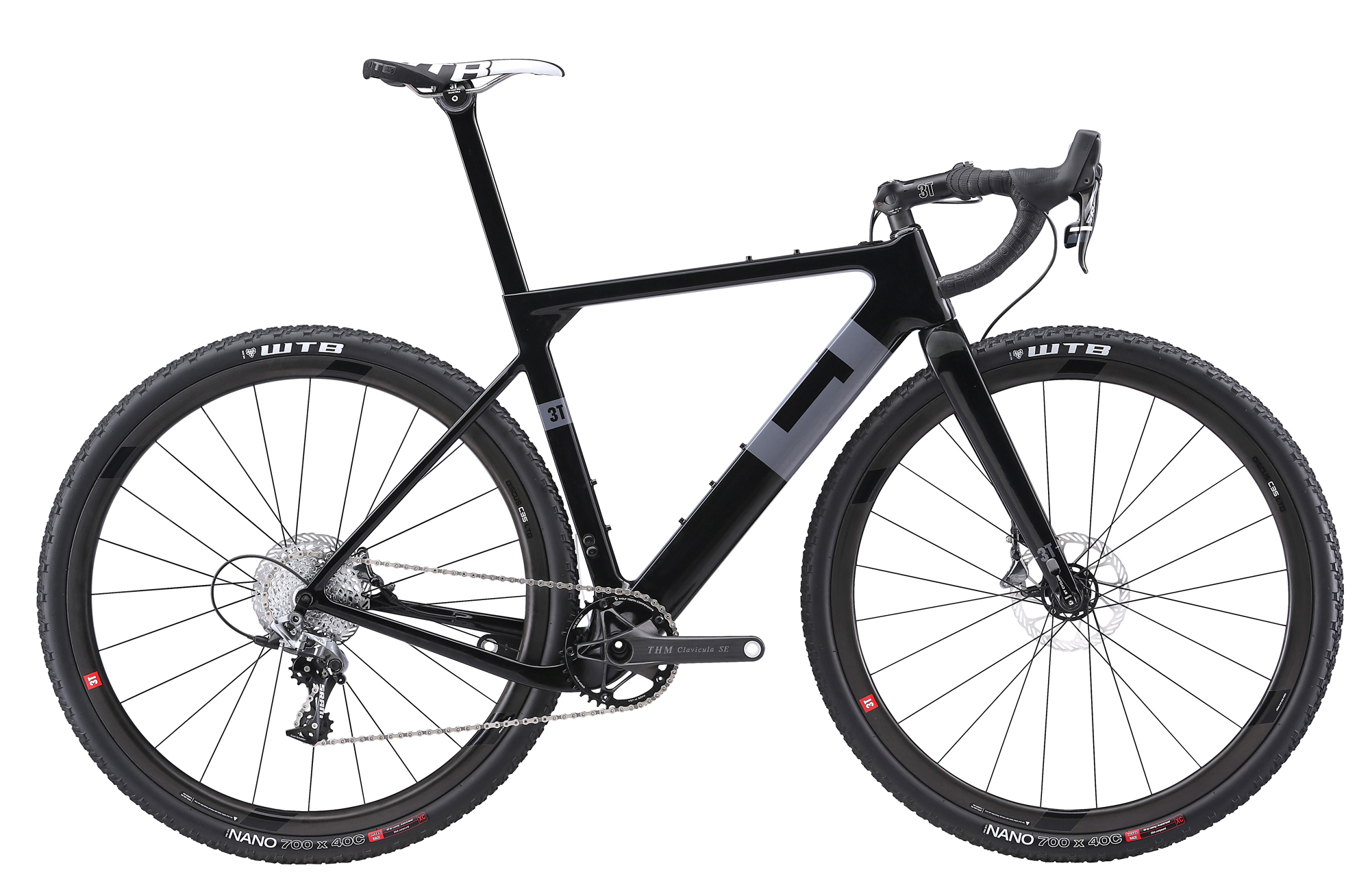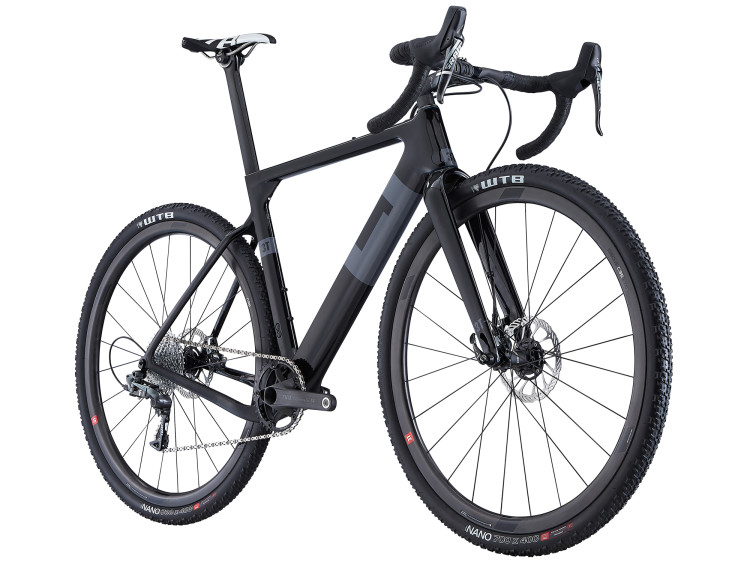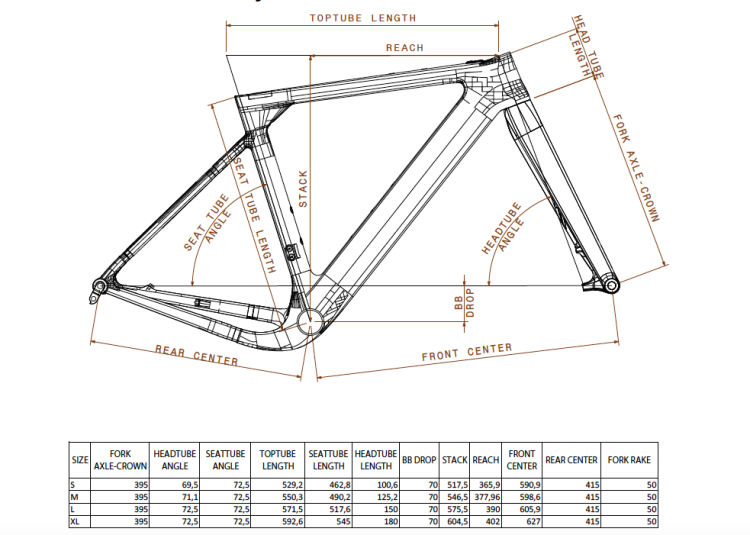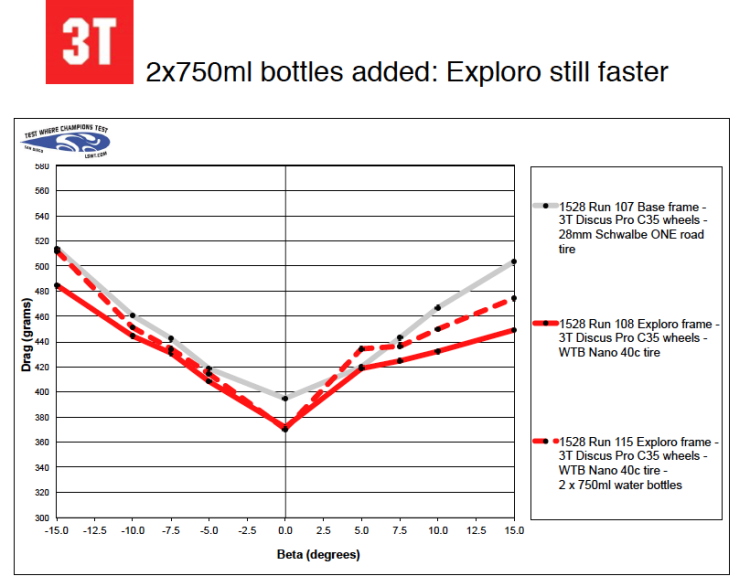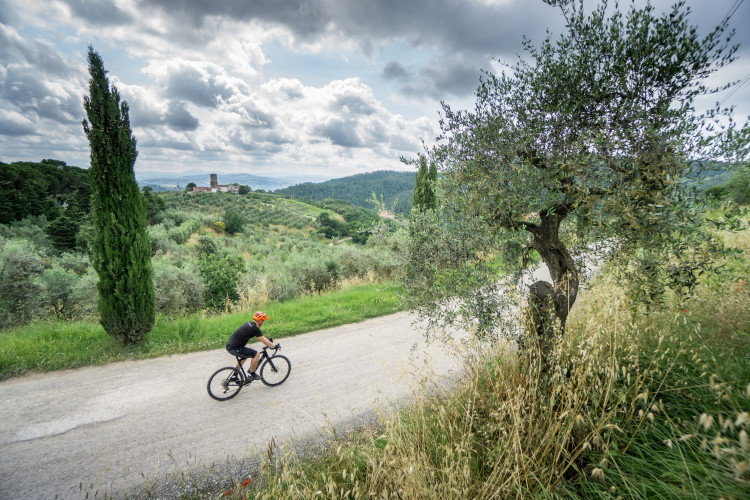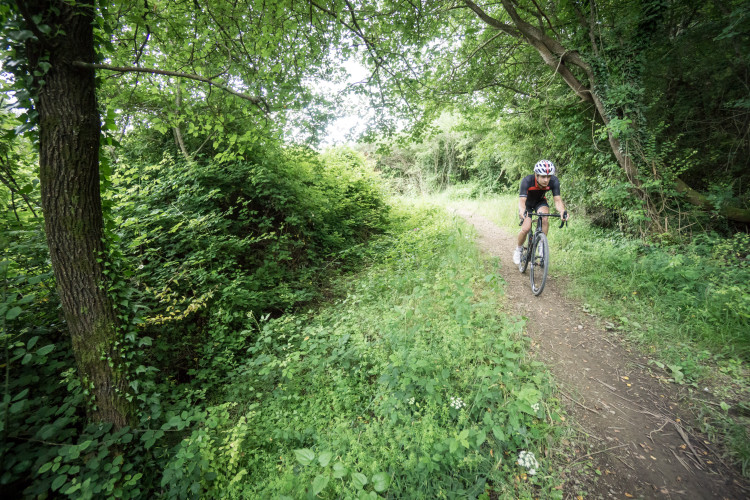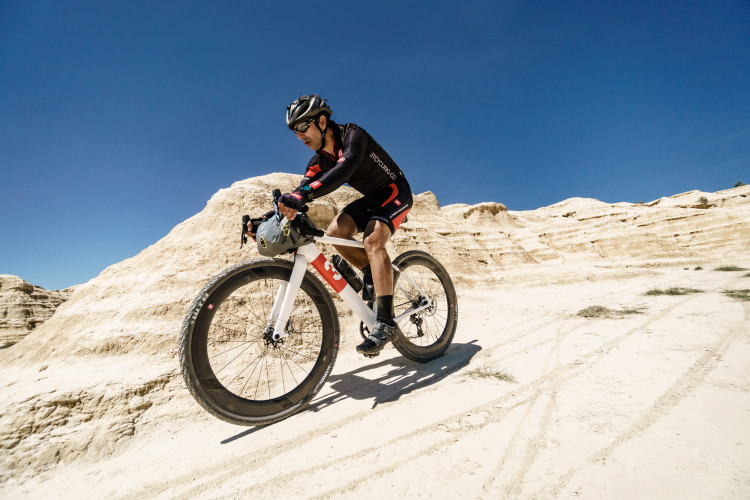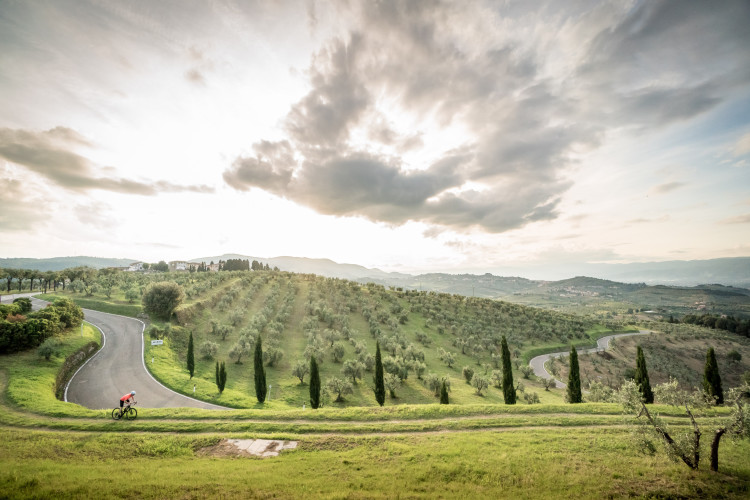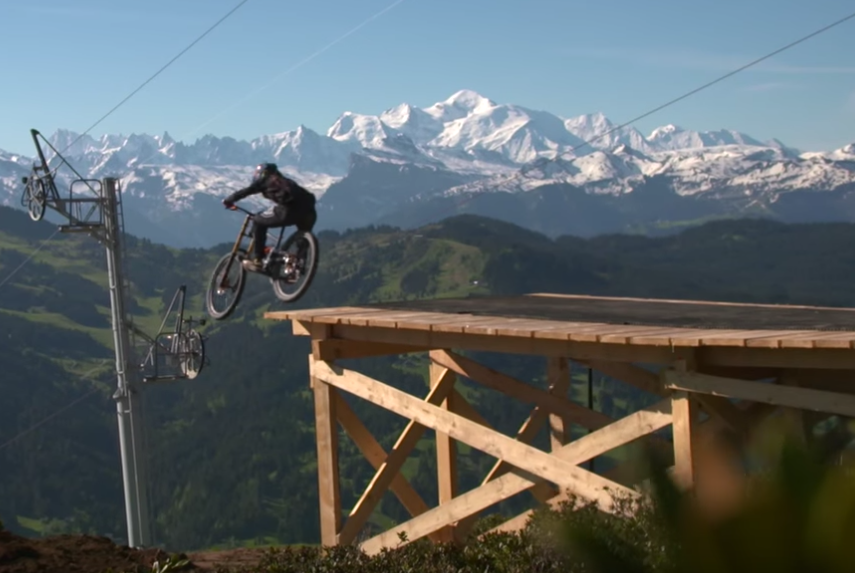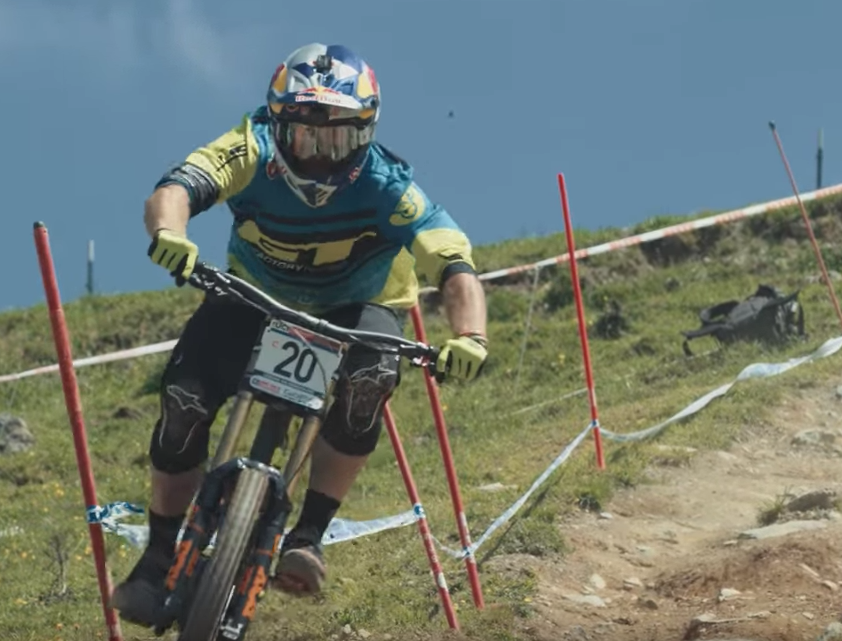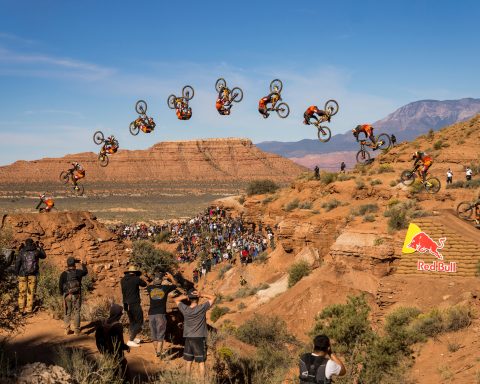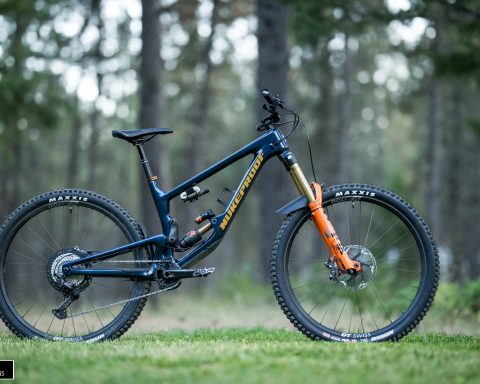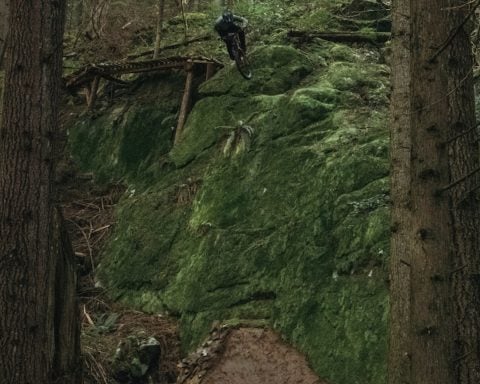[ad3]
The world of bicycles is constantly under development and in recent years the number of categories have grown exponentially. 3T which has been going for 55 years have always been known as innovators. As one of the first companies to use aerospace aluminum, they lead off with a significant new bike style that is available immediately.
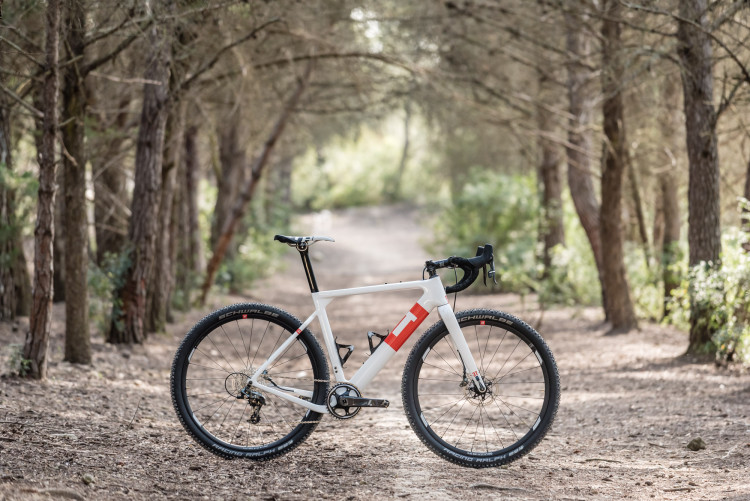
The Exploro is what many would consider the ideal mix between a road and pedal anywhere, wider tyre mtb design. The aim of 3T Exploro is clear, explore. In order to explore – the rider that 3T is aiming at is heading up gravel roads and into places where a normal road bike can’t take you. Places where if you were riding an MTB it would be a slower, harder experience. 3T can meet the demands of a whole cross section of bikers that want to explore efficiently and not have to bring unnecessary extra weight and drag with them.
The Exploro is an aero gravel bike, the frame has been designed for low speed aero dynamic efficiency with extensive testing taking place in a low speed wind tunnel in San Diego, California. The frame has the most adaptable wheel mounting possibilities of pretty much any bike, it allows 650B wide rim mountain bike style rims to be mounted and at the same time it is possible to mount 700c X 35 mm tyres and wheels. With a 142mm X 12mm rear axle, 15mm x 135 front through axle and disc brakes, this bike is meant to ride in as many places as possible and be mounted how the rider chooses.
Frame Features
Frame numbers clearly show the origins of the bike being firmly from a road background, with a host of design features that 3T are using to change back road exploration. The rear chain stay drops low allowing the rear end to be as compact as possible. The head angle is open enough to be stable on descents with enough reach to keep up with roomy modern bikes. The frame fits within the UCI road frame envelope so although it is a disc frame, it is suitable for road racing where the rules allow. The tubes are robust and much stronger that a normal road bike with 3T giving them an aerodynamic shape and the clearance where needed to accept large tyres.
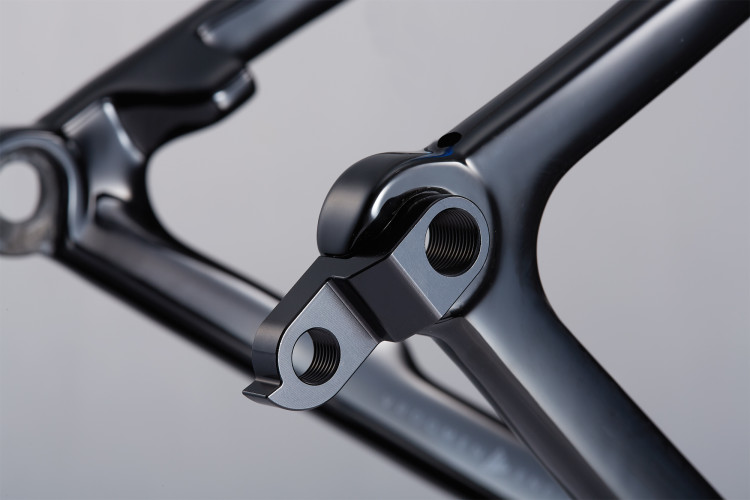
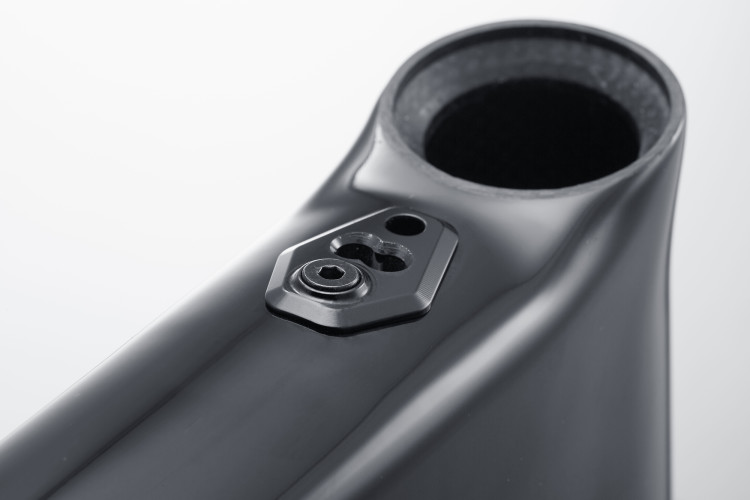
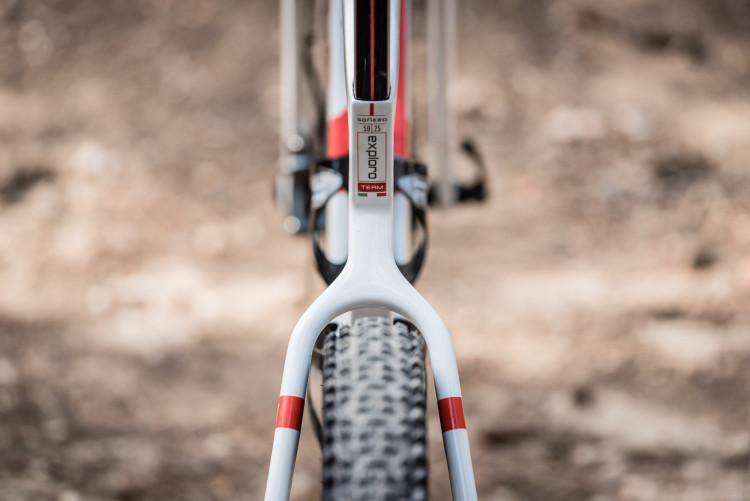
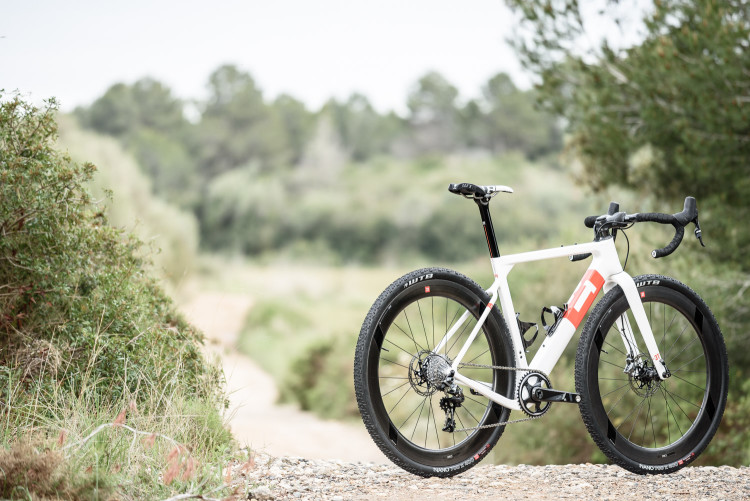
– Carbon frame available in S, M, L, XL.
– Sqaero frame design for strength and aero dynamic efficiency.- GravelPlus tyre clearance up to 2.1″
– Sqaero downtube: Picks up airflow off knobby front tire Shrouds water bottle.
– Exploro offers an aggressive yet comfortable rider geometry.
– Road cranks with a narrow Q-‐factor.
– Ideal for 1 X drive trains or 2 x drive trains.
– 160mm disc brake mounts.
– Internal brake hose & derailleur cables.
– Hang Loose hanger, fast easy rear wheel detachment.
– Checkpoint Charlie seat post insertion indicator.
– 2 attachment anchors for top tube bags.
– Weight (LTD) 950g, (Team) 1150g.
– Team Price: $3,000/€3,000/£2400 (Prexit)
– LTD Price: $4,200/€4,200/£3,300 (Prexit)
3T’s focus is obviously on weight and aero dynamic efficiency with their new frame. At the press launch, 3T spent a lot of time explaining the numbers behind their designs. For example, the graph above compares a standard round tube frame to an aerodynamic frame. Based on 3T’s test, clearly there is a marked improvement in aerodynamic efficiency over a standard frame.
On The Trail
We want to start with the fact that 3T were interested in a mountain bike tester’s perspective within our group of testers. We understood due to a wide cross section of bikers at the press launch that each group of rider that tries a bike tends to have different expectations about the experience and different riding skills. We have some basic experience with a gravel bike, so our opinions are very much from a fresh perspective.
Our test ride was a 40 km varied terrain ride that took in gravel & tarmac climbs plus descents on both surfaces. Some single trail was to be had as well as a variety of flat road sections. Over the course of the ride we used two sets of tyres, 34mm 700c and 650B 2.1″. Component builds were SRAM 1×11 gearing and SRAM Force brakes with THM carbon cranks. Chain ring sizes varied widely across the test bikes, our front drop stop ring was a 38T onto a 42-10T cassette. Wheels were 3T’s Disc Plus C30W technology with an internal width of 28mm.
Uphill performance was efficient and smooth with both sets of tyres on all of the surfaces we tried. With the reduced rolling resistance compared to a mountain bike,the gearing was ideal and balanced for everything from high cruising speed to out of the saddle steep grinding climbs. The use of a wide range rear cassette is essential with a gravel machine if you want to take on steep tech climbs. Correct body position for the best traction on loose climbs was imperative, especially if there were tight switch backs but once we figured it out, we were flying up hills pretty effortlessly.
Descents on gravel roads with some rocky surface elements showed how the Exploro really flowed with the wide tyre option. Once we had gained confidence and discovered the limits of grip, we felt we could really let go, the drop bar position automatically lent itself to speed. Despite the fact there was no suspension, we really didn’t feel that we needed it. Even when faced with some technical rocky single trail with repeated changes in surface, the Exploro popped over everything. The light weight meant we were able to simply flick the bike where we wanted, it’s worth noting that it is not a bike that you can smash into rocks with. Pick the smoothest line and go with the flow. It was not raining on our ride, but there were some immersive mud sections, that did not affect braking in any way as we were using disc brakes.
High speed road descents were very similar to a road bike but the extra wide tyres added a level of smoothness to the ride. Lateral grip when cornering was exceptional compared to a narrow tyre. The use of disc brakes meant that braking was powerful and precise in all the conditions we were faced with.
On the flat road transfer sections we were able to open up the bike. Normally with a mountain bike, drag plays a significant role in how much time and effort is required and the route you choose. You don’t want to spend too much time getting to the bottom of a trail area on these transfer sections. The Exploro literally flies along and this means that you are able to ride across a valley and sample another climb/descent section with less effort. So how far you have to ride on the flat almost becomes a non-issue as the Exploro allows you to connect a more interesting route together.
Conclusion
Riding with a range of journalists and riders it was also an excellent chance to understand the ideas of other riders and their expectations. It seems road bikers judge a lot of their expectations by numbers, how far/fast/high, plus how much time and power they used, when they ride. Mountain bikers tend to judge their experiences by how cool a ride was and how good the single track was that they just blasted along.
The Exploro seems to be an excellent combination of those two ways of thinking that really does give the rider the chance to go places where you wouldn’t necessarily go and do it in a fun and efficient way. Which moves us on to our final point, the fun factor was pretty high with the Exploro. We enjoyed a beautiful area, connected up a few rest stops where we had enjoyed the wine and explored in a way we would not have done before.
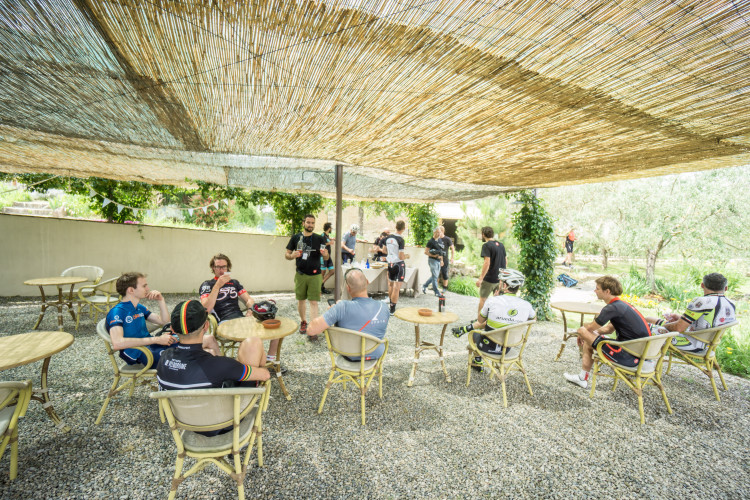
This product screams quality and versatility. The frame can be built in many different ways according to the area that a rider might spend time exploring in. The Exploro frame is available in two models, the Team version is at a competitive price when compared to other off road products, making it rather accessible. 3T have managed to create a pretty original frame that will definitely lift the expectations and possibilities of gravel riders and for those who have not tried this type of riding before, it can help diversify their riding experience.

